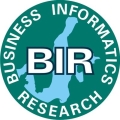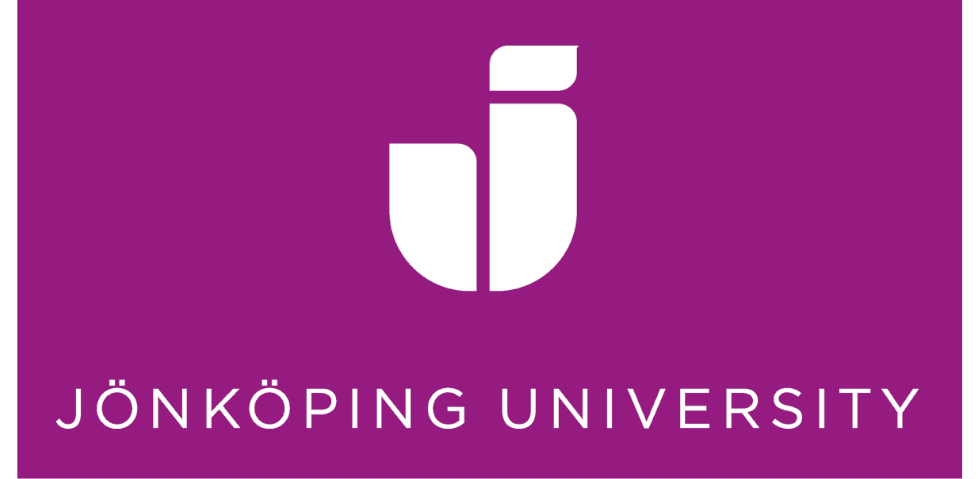13th Workshop on Business and IT Alignment (BITA 2023)
in conjunction with 22nd International Conference on Perspectives in Business Informatics Research, BIR 2023
A contemporary challenge for enterprises is to keep up with the pace of changing business demands imposed on them in different ways. There is today an obvious demand for continuous improvement and alignment in enterprises, but unfortunately, many organizations don’t have the proper instruments (methods, tools, patterns, best practices etc.) to achieve this. Enterprise modelling, enterprise architecture, and business process management are three areas belonging to business informatics traditions where the mission is to improve business practice and business and IT alignment (BITA). BITA is many times manifested through the transition of taking an enterprise from one state (AS-IS) into another improved state (TO-BE), i.e. a transformation of the enterprise and it's supporting IT into something that is regarded as better. Recent developments within digitalization and digital transformation have brought new dimensions to BITA where BITA becomes important in relation to smart products and smart business ecosystems. A continuous challenge with BITA is to move beyond a narrow focus on one tradition or technology. There is a need to be able to deal with multi-dimensions of the enterprise in order to create alignment between business and IT. Examples of such dimensions are organizational structures, strategies, architectures, business models, work practices, processes, and IS/IT structures. IT governance is also a dimension that traditionally has had a strong impact on BITA. There are ordinarily three governance mechanisms that an enterprise needs to have in place, 1) decision-making structures, 2) alignment process, and 3) formal communications.
This workshop aims to bring together people who have an interest in BITA. We invite researchers and practitioners from both industry and academia to submit original results of their completed or ongoing projects. We encourage to a broad understanding of possible approaches and solutions for BITA. Specific focus is on practices of business and IT alignment, i.e. we have encouraged submission of case study and experiences papers.
Business and IT-Alignment Topics
- Business and IT alignment and smart enterprises
- Best practice business and IT alignment case studies
- Business and IT alignment in small and medium sized enterprises
- Business and IT alignment discovery, change and improvement - methodologies and best practices
- Business and IT alignment and digital transformation
- Business and IT alignment and smart products
- Business and IT alignment through BPM
- Business value of business and IT alignment
- Challenges in business and IT alignment
- Critical success factors and associated KPIs´ for alignment initiatives
- Design thinking in business and alignment
- Enterprise architecture management (EAM) for business and IT alignment
- Enterprise modelling as a tool for business and IT alignment
- Experience reports and case studies
- Human aspects of business and IT alignment; organizational staffing and structure, change management and leadership strategies
- IT governance as a mean for alignment
- Metrics associated with the alignment life cycle, re-design, implementation, management and improvement
- Organisational implementations of various levels of business and IT alignment approaches
- Practices of business and IT alignment
Important Dates
- Paper submission: August 6, 2023
- Notification of acceptance: August 21, 2023
- Camera-ready submission: August 31, 2023
- Workshop date: September 15, 2023
Submission Types
- Regular papers should be 11-15 pages long, including figures, tables, appendices and references.
- Short papers should be 6-10 pages long, including figures, tables, appendices and references.
Submissions to BITA 2023 must be made using the submission system EasyChair (track: Workshop on Business and IT Alignment). All accepted workshop papers will be published in CEUR proceedings. Authors must use the one-column CEUR-ART style for the papers. The CEUR-ART styles can be found in this CEUR Zip file.
A selection of best papers will be invited to submit paper extensions for a special issue of the Journal on Complex Systems Informatics and Modeling Quarterly (CSIMQ).
September 15, 2023
Session 1 [8:35-11:00]
Exploring the Role of Aggregators in the Ecosystem of Energy Flexibility
- Amirhossein Gharaie and Björn Johansson
A Methodological Approach for Ontology-based Meta-Modelling (short paper)
- Emanuele Laurenzi
Orchestrating progression of Enterprise Data into Actionable Intelligence using Conceptual Modelling (short paper)
- Vasile Ionut-Remus Iga, Ana-Maria Ghiran and Cristina-Claudia Osman
Business Intelligence in Wearable Health: Transforming Smartwatch Data into Actionable Insights [online presentation]
- Avnish Singh Jat
Workplace Safety Know-How: Enhancing Workplace Safety through the Capability Driven Solution (short paper) [online presentation]
- Ruta Pirta-Dreimane and Ralfs Matisons
Session 2 [11:30-12:15]
Workflow Optimization at Financial Institutions: Survey and Case Study
- Oskars Rodiņš
ISMS in Small Public Sector Organizations: Requirements and Design of a Procedural Approach (short paper)
- Frank Moses and Kurt Sandkuhl
Program committee chairs
- Ulf Seigerroth, Jönköping University (Sweden) (co-chair)
- Kurt Sandkuhl, University of Rostock (Germany) (co-chair)
Program committee
- Per Backlund, University of Skövde, Sweden
- Chiara Di Francescomarino, University of Trento, Italy
- Michael Fellmann, Rostock University, Germany
- Peter Forbrig, Rostock University, Germany
- Aurona Gerber, University of the Western Cape, South Africa
- Janis Grabis, Riga Technical University, Latvia
- Stijn Hoppenbrouwers, HAN University of Applied Science, The Netherlands
- Christina Keller, Lund University, Sweden
- Hasan Koç, Berlin International University of Applied Science, Germany
- Andreas Martin, FHNW University of Applied Science and Arts Northwestern Switzerland, Switzerland
- Jens Myrup Pedersen, Aalborg University, Denmark
- Achim Reiz, Rostock University, Germany
- Janis Stirna, Stockholm University, Sweden
- Wieslaw Wolny, University of Economics in Katowice, Poland


